How Does Shape Affect The Price of a Diamond?
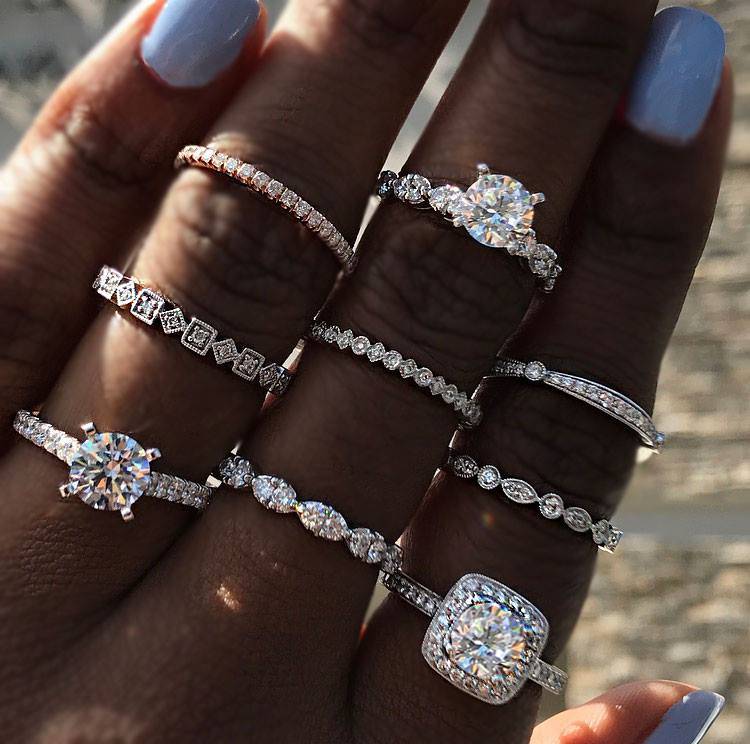
How does shape affect the price of a diamond? Truth be told, this is a question our grooms ask more often than our brides. For the ladies, they have a cut – maybe two – that they’re drawn to, and the rest of the engagement ring budget should be arranged around that preference. For the guys, hey, why not find out all you can to get a great deal?
Gents, we fully support that attitude. We believe the happiest clients are the most informed – just don’t overwhelm yourself in all your research. And the basic building blocks of a solid foundational knowledge for buying your first diamond are, of course, the 4 c’s:
Everything You Need to Know About Diamond Color
Everything You Need to Know About Diamond Clarity
Everything You Need to Know About Diamond Carats
Everything You Need to Know About Diamond Cut
Beyond those basics though, there are so many factors that affect the cost of each individual diamond. From the sub-categories of those 4 C’s, to important distinctions between grading labs, and even some marks on a grading report that are obscure but very important for your bottom line. And that’s before you ever even look at a diamond. Of course, judging with your own eyeballs is a great way to see why a diamond is more expensive…sometimes (read just the last paragraph if you’re short on time.)
One of those factors that has a big impact on a diamond’s price is its shape. Note, shape is different from cut, though the two are often used interchangeably. So when we say “This is a cushion cut” we’re referring to the shape, the style it’s cut in, but not the Capital-C-Cut grade.
The shape of a diamond affects its price in two ways.
- How well does the shape maximize the rough diamond? When a cutter goes to town on a rough diamond, he or she needs to carve those facets in a way that provides the best return on investment. Some shapes use a lot more of the rough than others.
- How in-demand is that particular shape? The higher the demand, the higher the price, with only one exception you’ll see below.
So, brass tacks, what’s the breakdown? According to research at Designers & Diamonds, in descending order:
- Round (high demand, low return on rough)
- Heart (low return on rough)
- Asscher (rare)
- Pear (lower demand)
- Marquise and oval (lower demand, better return on rough)
- Emerald (lower demand, better return)
- Radiant (ditto)
- Cushion (high demand, but high return)
- Princess (ditto again!)
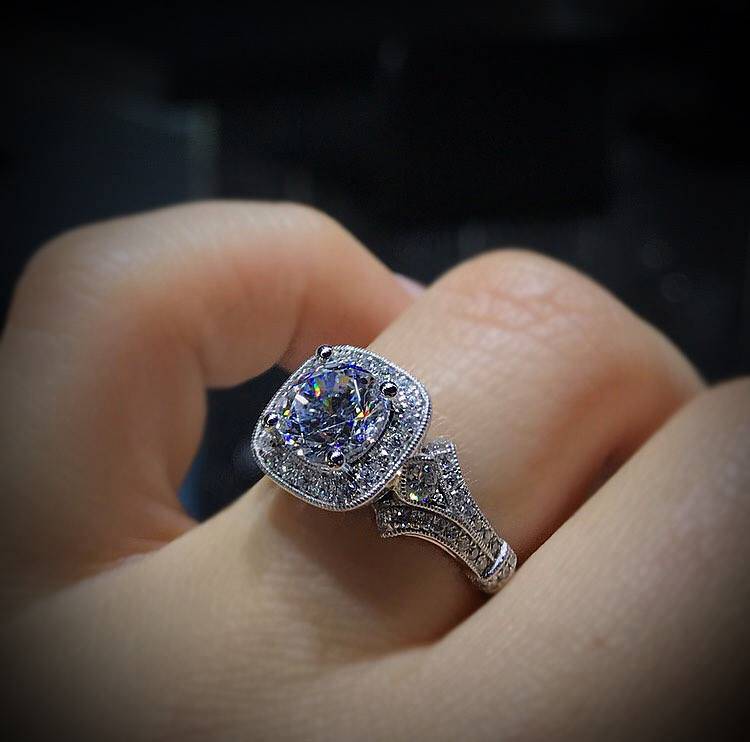
But! An excellent article by Jewelers Mutual (Our go-to insurance company – GET YOUR RING INSURED!) has a few other details about how shape affects price, and varies just slightly:
- True Royal Asscher diamonds, a proprietary signature cut, are rare and pricey.
- Well-cut emeralds carry a higher price point, especially when increasing clarity to avoid dullness.
- Round brilliants tend to come with a higher price tag as well. Partly due to high demand, but also because more of the rough stone is lost in the cutting process.
- Due to less waste in the cutting process, princess cuts have a lower price-per-carat than rounds.
- Cushions and ovals are generally even less expensive.
- Less popular shapes like marquise, trillion, and pear are typically affordable due to lower demand.
So yes, shape does affect the price of your diamond – but it isn’t the only or even the biggest determining factor. So our advice, once again, is tell us what you want most in a ring, and let us work our magic with your budget to make it happen!
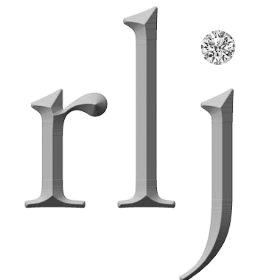
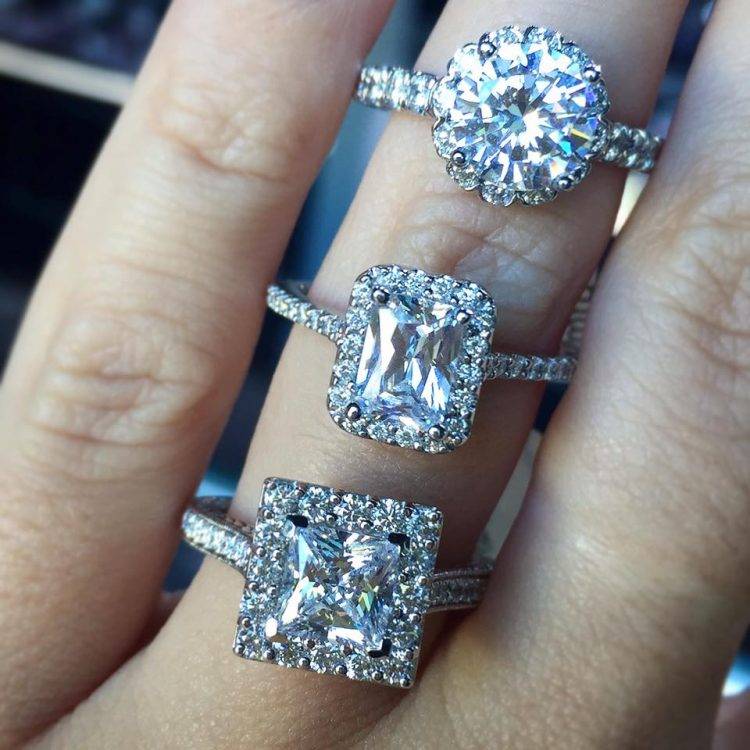
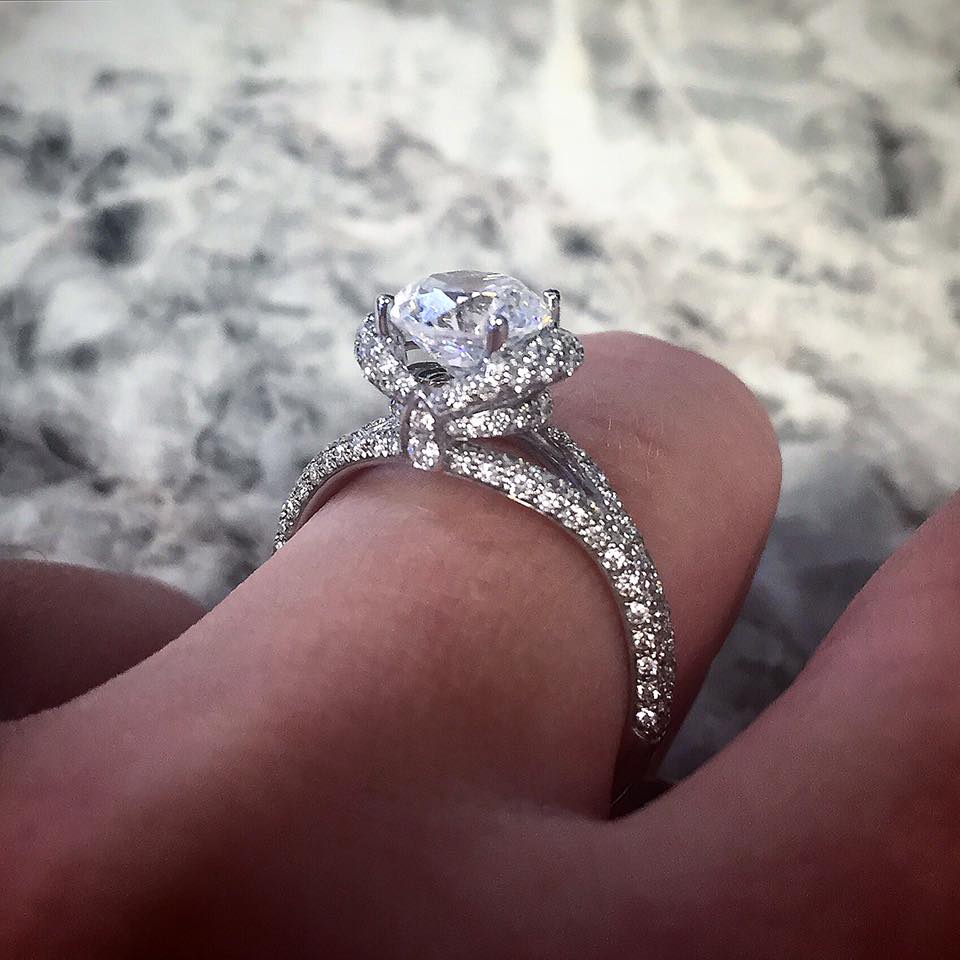
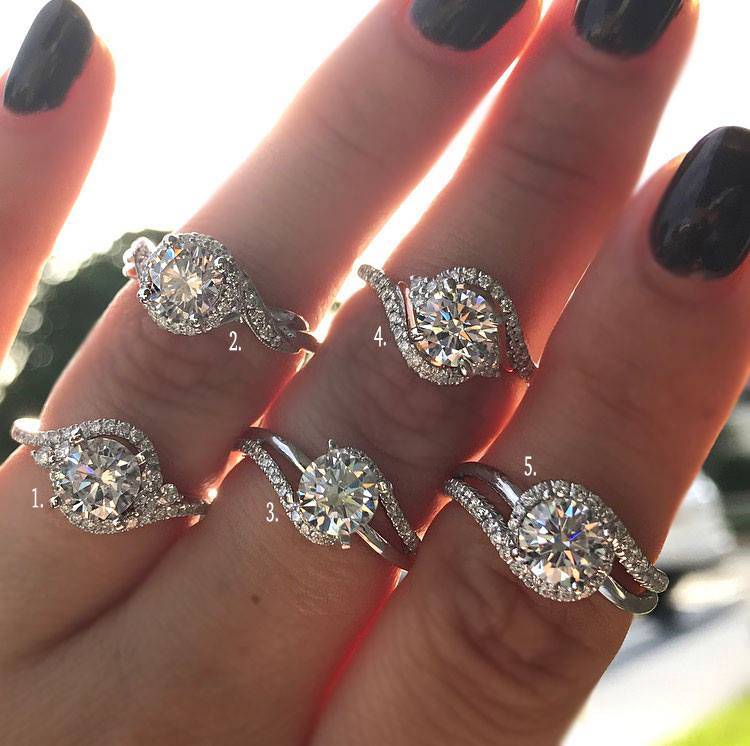

Comments are closed.